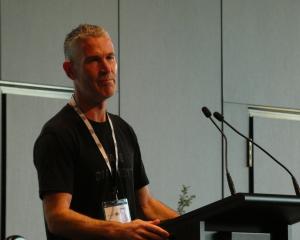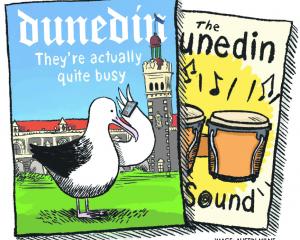Workplace Relations and Safety Minister Michael Woodhouse is receiving bouquets and brickbats for his handling of changes to New Zealand's employment law.
The Employment Relations Amendment Bill, which significantly changes the way unions can interact with employers and employees, was expected to pass last week.
However, delays meant the Bill will be enacted this week, possibly today.
One of the more contentious issues for employers was Part 6A, which CrestClean managing director Grant McLauchlan fought against when former labour relations ministers Simon Bridges and Kate Wilkinson were in charge of the Bill.
The objective of Part 6A was to provide continuity of employment for employees in specific industries when a business was restructured or sold.
Some of the industries are cleaning and hospital work.
Employees in small and medium enterprises accounted for about a quarter of those in affected industries.
But Mr McLauchlan, an employer of a large number of cleaners, said the rule forced employers to take on workers from other contractors, even though they might not be suitably trained.
Mr McLauchlan, from Dunedin, said Mr Woodhouse, a Dunedin-based list MP, had understood concerns about the practical failings of Part 6A and the proposed amendments.
Mr Woodhouse was furnished with those concerns last week and made reference to them in his speech in Parliament.
''I have to credit him for this, as Kate Wilkinson and Simon Bridges continually ignored this advice not only from Crest but other industry participants,'' Mr McLauchlan said.
The changes, if enacted, would significantly improve Part 6A legislation and go a good way towards making life better for affected businesses, he said.
In his speech, Mr Woodhouse said the Bill delivered on National's manifesto from 2011 and 2014.
''It continued a strong focus on reducing compliance costs and created more flexibility around employment arrangements and bargaining.''
In a reference to Part 6A, Mr Woodhouse said it had been a ''fairly contentious'' part of the previous Act for the past nine to 10 years.
Some sensible amendments would acknowledge the burden of Part 6A on very small businesses.
Clarity was needed around the obligation on the outgoing employer and the incoming employer under a restructuring so employees had enough time to consider their options and the incoming employer had a clear understanding of the time frame for getting the information and understanding what employees they were to take on, Mr Woodhouse said.
Labour Party labour spokesman Andrew Little said National had wanted to pass the legislation before Labour Day but was left with ''egg on its face'' after failing to get the Bill passed in time.
At the same time, a petition launched by Labour calling on the Government to dump changes to clause 44 - which he said would do away with minimum entitlements to smoko breaks for thousands of ordinary working Kiwis - had attracted 10,052 signatures in the first 24 hours.
The Bill fundamentally changed the nature of many hard-won employee rights.
It also did away with collective bargaining protections, made vulnerable workers' jobs less secure and undermined the principles of good faith, he said.
''To begrudge anyone having a cuppa or a meal break during their working day goes against the grain. It's a Kiwi tradition. Doing away with it is mean-spirited and unfair,'' Mr Little said.
But Mr Woodhouse hit back, claiming Mr Little was scaremongering.
''Claims the Bill will see the end of smoko breaks is nothing but a cynical dog whistle used by Labour to create a climate of fear.''
The Bill acknowledged an employee was entitled to rest and meal breaks and balanced that with the environment and the need of the workplace by making the rest and meal break rules more practical and flexible.
Under the Bill, employers and workers were able to negotiate when the meal break took place and for how long. If they could not agree, the employer could set down the time.
But it must be reasonable, Mr Woodhouse said.
The Bill also put ''reasonable limits'' on when rest breaks and meal breaks could be restricted in certain workplaces - such as when healthcare workers were dealing with an emergency.
''Employers must also still meet their legal requirements for managing health and safety risks in the workplace when considering rest and meal breaks.
"The only situation where an employer does not have to give breaks are when the employee agrees, or where the nature of work means the employer can't reasonably allow a break. For Mr Little to suggest otherwise is absolute rubbish,'' he said.
Maritime Union Port Chalmers-Dunedin secretary Phil Adams said in a letter to the Otago Daily Times he watched Mr Woodhouse pushing the changes through and wished to remind the minister his father worked on the waterfront as a tally clerk alongside Mr Adams.
''He enjoyed the best conditions negotiated by the waterfront workers' union and had collective bargaining and good rest breaks which were paramount in the conditions our people negotiated.''
The union of which Mr Woodhouse senior was a member allowed him to work for good wages which, ultimately, would have allowed Michael Woodhouse to pursue his education, allowing him to serve in Parliament, Mr Adams said.
''I hope he has a conscience to remind him of where he came from.''












